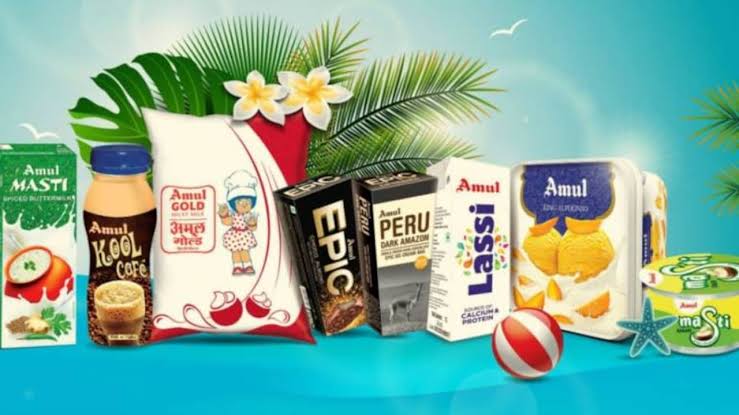 Image Source: Moneycontrol
Image Source: Moneycontrol
Amul has once again emerged as India's number one food brand with a brand value of $4.1 billion, followed by Mother Dairy at the number two position with $1.15 billion, according to the Brand Finance India 100 – 2025 report. The fresh rankings indicate domination of the nation's rapidly evolving food sector by dairy cooperatives, followed by Britannia, Nandini, and Dabur in the second ranks.
Key Highlights
Amul is No. 1: Amul is No. 1 with brand value of $4.1 billion, dominating the Indian food market, based on its extensive rural reach, wide portfolio of products, and strong consumer preference.
Mother Dairy climbs to No. 2: Mother Dairy's brand worth rose to $1.15 billion, from third position last year, and is now at No. 35 of India's best 100 brands in all categories, from No. 41 of 2024.
Britannia, Nandini, Dabur among top five: Britannia took the third place, followed by Karnataka's Nandini and FMCG major Dabur, indicating the health of packaged food and dairy brands.
Healthy financial performance: Mother Dairy's turnover for FY25 stood at ₹17,500 crore, a healthy 16% up from the previous fiscal.
Cooperative success stories: Amul, run by Gujarat Cooperative Milk Marketing Federation (GCMMF), is the world's largest farmer-owned dairy cooperative, collecting 32 million litres of milk daily and selling more than 24 billion packs annually in 50+ countries.
Leadership quotes: GCMMF MD Jayen Mehta attributed the success to crores of dairy farmers and the brand's focus on quality and price. Mother Dairy MD Manish Bandlish referred to the achievement as a reflection of the trust and resilience established by the brand across decades.
Brand Finance methodology: Rankings are calculated based on consumer loyalty, market reach, and financial performance, with over 6,000 brands globally valued annually by Brand Finance.
Industry Impact
This year's listings emphasize the growing importance of trust in brands, quality, and size in India's food business. Amul and Mother Dairy's year-over-year progress are a reflection of their ability to adapt with changing consumer preferences while having strong linkages with farmers and transferring value to millions of families in the nation.
Source: The Economic Times, Retail Economic Times, BusinessWorld, Times Now, NewsBytes, Business Standard
Advertisement
Advertisement




